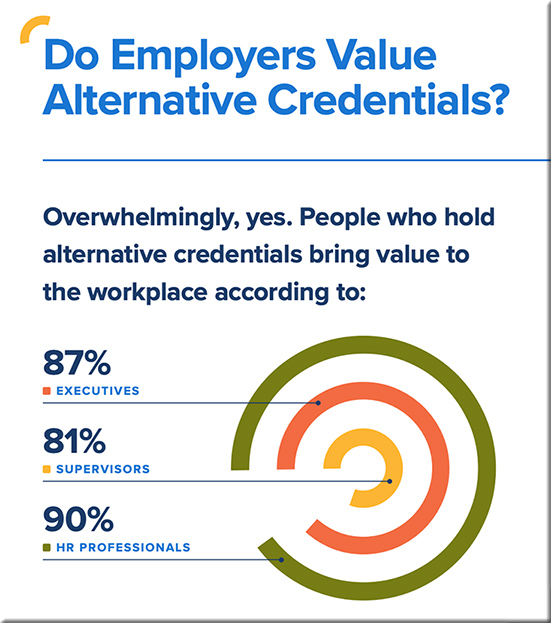The rise of alternative credentials in hiring — from shrm.org; with thanks to Ryan Craig for this resource
Increasingly, U.S. workers are turning to alternative credentials as a way to enhance and demonstrate skills and work readiness. But can certifications, badges and apprenticeships stand in for traditional education and work experience when seeking a new job?
Excerpts:
Alternative credentials can be defined as any microcredential, industry or professional certification, acknowledgment of apprenticeship (registered or nonregistered), or badging that indicates one’s competencies and skills within a particular field. Alternative credentials do not include traditional academic degrees or required occupational licensures.
…
However, one potential barrier to employers’ wider recognition of alternative credentials is actually a technical one. Automated applicant tracking systems (ATS) frequently don’t pick up on them, because often there is still no standard approach to collecting this information as systems do for traditional education and work experience. Only one-third of HR professionals whose organizations use automated prescreening say this prescreening even recognizes alternative credentials. Such inconsistency offers a clear direction for both HR and the providers of applicant screening tools to improve the ways alternative credentials are captured in the application process.









